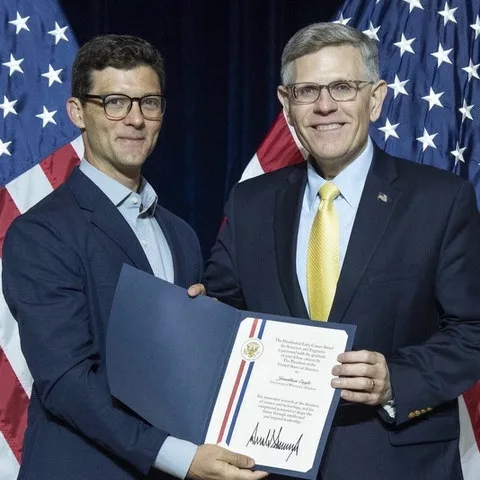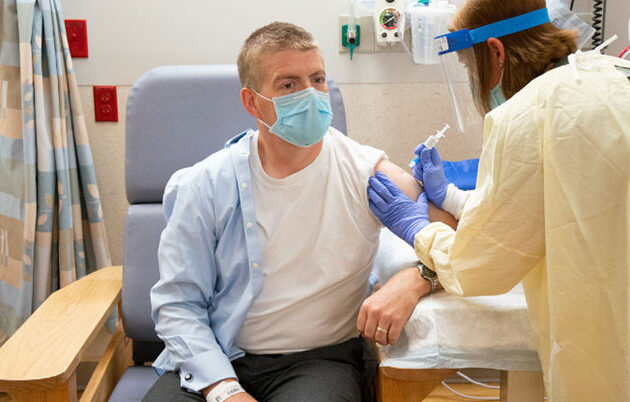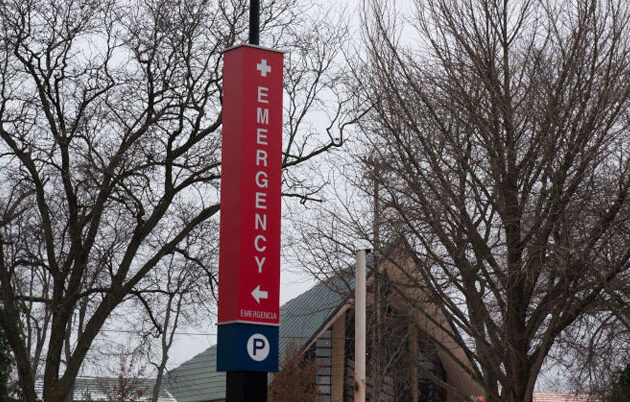“It’s validation that the physics research we do with a medical objective is important to the nuclear physics community,” said Engle, assistant professor of medical physics and radiology at the University of Wisconsin-Madison.
His team is pioneering new ways to use high-energy neutron fluxes to create radionuclides that are used to diagnose and treat diseases such as cancer. He is studying ways to manufacture specific radionuclides with particle accelerators on a scale large enough for clinical application.
The award, which is the highest honor given by the U.S. government to scientists and engineers at the outset of their careers, recognizes individuals who show potential for leadership in the advancement of science and technology. Engle was nominated by the Department of Energy in 2016, and was formally presented with the honor in Washington, D.C. in 2019.
The novel method that Engle has developed may generate radionuclides important to therapy and disease diagnosis that traditional methods struggle to produce. These radionuclides are essential for targeted radionuclide therapy, which attacks cancer cells with greater specificity than conventional cancer treatments, sparing more healthy tissue.
Engle predicts that targeted radionuclide therapy will be used in the near future in combination with methods such as genetic therapy and immunotherapy to improve cancer treatment. For him, this work is the perfect combination of helping others, collaboration and problem-solving.
“I wanted to do something that had a real chance of helping people in a tangible way,” he said. “This research also lets me interact with really cool, very motivated people.”
By finding ways to produce radionuclides for clinical application, Engle said he hopes to explore treatments that are both more effective and cause fewer undesired side effects. Instead of resecting tissue with a scalpel or using external beam radiation, for example, his field is trying to tackle cancer on a molecular level. And as the nuclear medicine field continues to grow, Engle said he hopes his work will result in a tangible improvement in health care quality.
“I hope that the legacy I leave is one of positive, creative, intellectually valuable collaboration on well-chosen problems,” Engle said.
In addition to his own research projects, Engle spends much of his time mentoring students and building community at UW–Madison.
“I am most proud of the students and graduates who I’ve mentored. I’m way more proud of my association with them than any paper I’ve ever written or grant I’ve received,” he said. “I can’t wait to see what they do.”


